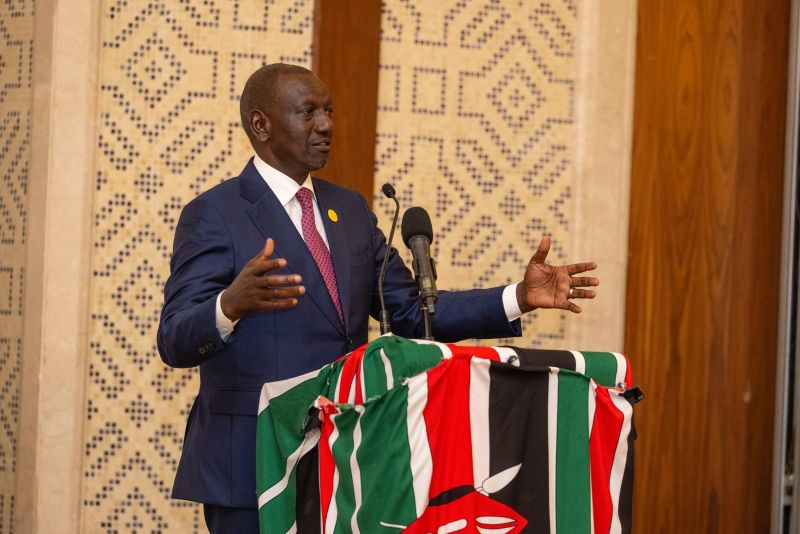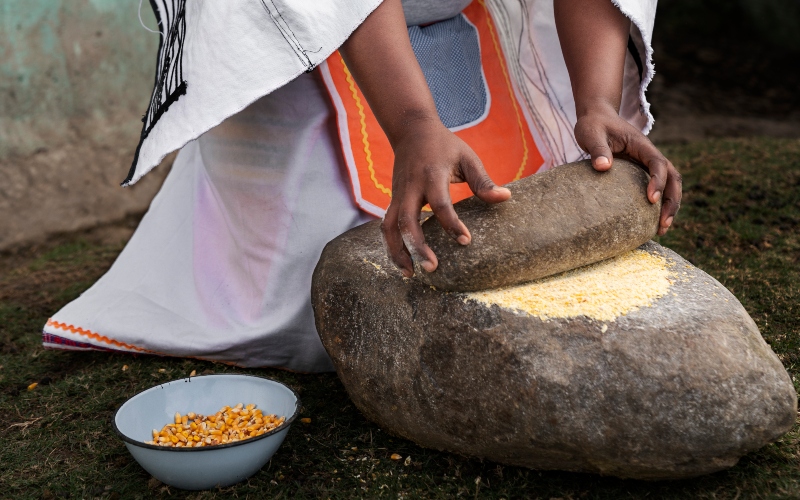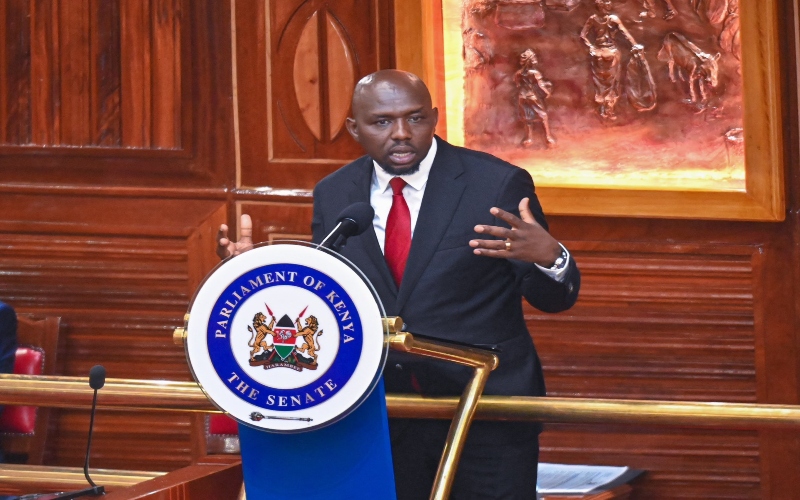Africa risks becoming global hunger epicentre by 2030 if reforms are not put in place, report warns

The report emphasises that Africa has the tools to transform its food systems, from climate-smart farming and digital finance to stronger governance and regional trade.
Africa faces an urgent challenge to feed its people, with nearly 300 million already undernourished and population growth set to sharply increase food demand.
The 2025 Africa Food Systems Report (AFSR), released last week at the Africa Food Systems Forum in Dakar, Senegal, warns that without urgent and coordinated reforms, the continent could surpass Asia as the global hunger hotspot by 2030.
More To Read
- Global food prices ease as East Africa slips deeper into hunger – report
- Hunger crisis deepens in Sudan’s El Fasher as 229 die under RSF siege
- WFP warns of severe hunger crisis amid funding cuts
- Why are over 670 million people going hungry?
- The ‘food heroes’ cultivating global change
- Kenya ranked 103 globally with serious hunger levels, as 20 million people remain undernourished
The report emphasises that Africa has the tools to transform its food systems, from climate-smart farming and digital finance to stronger governance and regional trade.
But incremental efforts will not be enough. Bold and unified action is needed to secure food, economic stability, and prosperity for the continent’s 1.4 billion people.
The 2025 AFSR, themed “Drivers of Change and Innovation in Africa’s Food Systems,” highlights the work of farmers, scientists, entrepreneurs, and policymakers across Africa who are pioneering solutions to generate jobs, nourish communities, restore ecosystems, and open new markets.
It points to digital credit platforms, resilient infrastructure, and expanded trade under the African Continental Free Trade Area (AfCFTA) as key opportunities for transformation.
Despite these possibilities, hunger remains high. In 2023, more than one in five Africans were undernourished. The report stresses that without decisive action, Africa risks becoming the global epicentre of hunger by 2030.
Countries with strong governance and clear policies consistently achieve lower hunger rates and better nutrition.
Fragile states, however, face food insecurity above 80 per cent. “Good governance is not just an enabler but the foundation of resilient food systems,” the report notes.
African crop yields remain far below global averages, with cereals at just 1.7 tons per hectare compared to the global 4.2 tons.
While Eastern Africa has seen a 30 per cent rise in cereal productivity over the past decade, other regions have stagnated, often expanding farmland at the cost of forests and soil health. Vegetable and oilcrop yields remain low, with farmers often resorting to “extensification” instead of improving productivity per hectare.
Droughts, floods, rapid population growth, and urbanisation are reshaping Africa’s food demand.
The report calls for scaling up climate-smart farming, regenerative practices, water efficiency, and soil management to safeguard the future.
Despite agriculture being central to African economies, the sector receives less than 5 per cent of commercial bank lending, and public investment averages just $8 per rural resident. The report urges governments, private investors, and development partners to expand tools like blended finance, digital credit, and agricultural insurance to boost growth and resilience.
Poor roads, storage facilities, and cold chains contribute to post-harvest losses of up to 30 per cent.
Closing the $67–108 billion infrastructure financing gap could reduce these losses and increase farmer incomes by up to 40 per cent.
The report warns that transformation is no longer optional. With Africa’s population projected to reach 2.5 billion by 2050, the cost of inaction will be measured in hunger, economic stagnation, social unrest, and lost opportunities for youth.
The 2025 CAADP Kampala Declaration offers a roadmap, emphasising policies that place farmers, especially women and youth, at the centre, integrate resilience into the food value chain, and leverage AfCFTA to boost intra-African trade.
“The evidence is clear: Africa cannot feed its future with the tools of the past. We must invest not just in seeds and soil, but in governance, finance, and infrastructure that empower farmers as entrepreneurs and innovators,” the report states.
“This year’s AFSR is more than a call to action; it is a roadmap for systemic transformation. Africa has the vision, capacity, and collective leadership to shift from fragmented progress to integrated, resilient food systems. By aligning investments, strengthening institutions, and leveraging innovation, the continent can build inclusive agri-food systems that deliver decent jobs, healthy diets, and sustainable growth for all,” added Dr. John Ulimwengu, Lead Author of the 2025 AFSR.
“The transformation of Africa’s food systems will define the prosperity, health, and stability of the continent for generations. The choice before us is stark; act boldly now, or risk locking millions into cycles of hunger and poverty,” he added
Top Stories Today











































